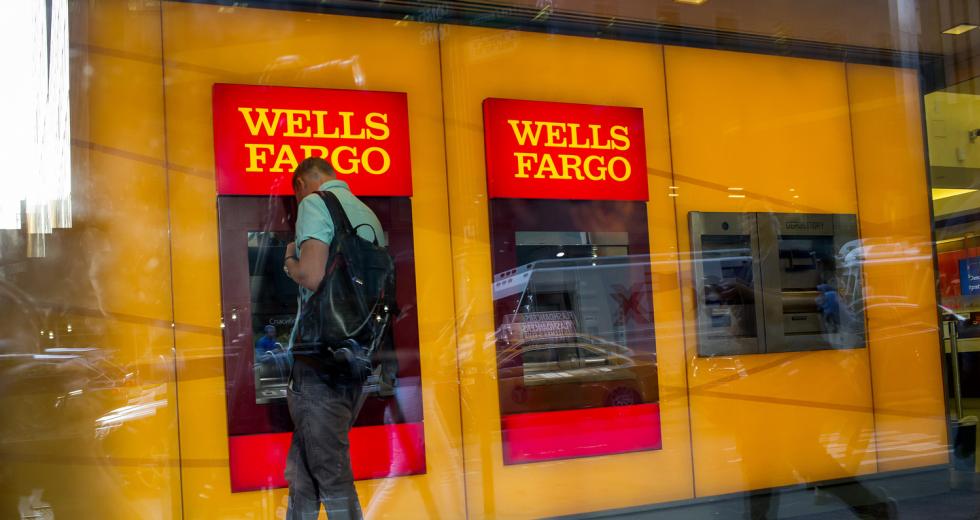Wells Fargo’s attempt to force aggrieved customers into closed-door arbitration over its fake-accounts scandal is drawing a legislative backlash in its home state of California and risks subjecting the bank to another round as a public punching bag.
Following pledges at Capitol Hill hearings and in advertisements that it would rebuild consumer trust, the San Francisco-based lender moved to avoid facing many claims in open court. Even as Donald Trump’s surprise election may ease pressure from Washington, the arbitration issue injects new life into the scandal and could further tarnish the firm’s reputation.
“It goes once again to the bank’s not following the rules, and they get away with it at the detriment of the consumer,” Ed Mills, an analyst at FBR Capital Markets, says. “It’s a concern that Wells Fargo is trying to have it both ways.”
California state Sen. Bill Dodd, a Democrat, has responded to Wells Fargo’s arbitration stance, introducing a bill this month to override forced-arbitration clauses in contracts created through fraud. He says his legislation is, in part, a pushback against likely attempts to weaken U.S. regulations.
“Unfortunately, we’re more likely to see an erosion of consumer protection at the federal level over the next several years,” Dodd says.
Wells Fargo admitted this year that its bankers may have created millions of fraudulent accounts. It fired thousands of employees, made refunds to customers and agreed to pay fines totaling $185 million. That was followed by congressional hearings and the resignation of CEO John Stumpf.
“We are working very hard to undo harm that may have been caused to our customers, including contacting those affected to ensure they still want their accounts, reimbursing improper fees and issuing refunds,” Wells Fargo Spokeswoman Jennifer Dunn wrote in an emailed statement. “We want to make sure that no Wells Fargo customer loses a single penny because of these issues.”
‘Basic Fairness’
In setting up the fake accounts, bank employees entered existing customers into new contracts requiring that any related disputes be handled in private. At issue is whether such terms are binding on customers for bogus accounts.
“It’s a question of basic fairness, that a large bank is denying you some of your legal rights based upon something you never signed,” Mills says. “That probably reignites some of the populist angst against the bank that is still simmering.”
In a class-action complaint filed in October in Los Angeles federal court, consumers are demanding monetary damages. They say they were victimized by a bank intent on bolstering its balance sheet. While individual damages could be under $100, the cost of paying a class comprising the owners of millions of fraudulent accounts exponentially increases the price tag of litigation.
That begins to explain why Wells Fargo would prefer to avoid class-action disputes, says Ken Feinberg, the Obama administration’s former paymaster who mediated resolution of disputes with BP, General Motors and Volkswagen.
‘Riskiest’ Path
“If they can get away with it, it’s sound policy — but the path they’re currently following is also the riskiest,” Feinberg says. “It’s hard to imagine the court won’t ultimately say that the arbitration clauses are unconscionable.”
Wells Fargo considers arbitration a “last resort” when resolving customer disputes, according to Dunn. She says that while arbitration bars customers from pursuing class-action cases, it doesn’t block them from other legal venues like small claims court. Arbitration is faster and cheaper than litigation, she says.
In the three months since Wells Fargo settled with the Consumer Financial Protection Bureau, it has forfeited business and lost its title as the world’s most valuable bank to rival JPMorgan Chase. The lender’s executives twice endured hours-long grillings on Capitol Hill, including one from Sen. Elizabeth Warren, who called for the U.S. Department of Justice and the Securities and Exchange Commission to investigate the bank.
Those agencies are investigating, as are another federal department, state attorneys general, prosecutors’ offices and congressional committees. Wells Fargo’s stock, which has gained 5.4 percent for the year, is still the worst performer among the 10 largest U.S. banks and trails the 27 percent rise of the KBW Bank Index.
Lawsuits Multiply
Attorneys have filed at least 30 lawsuits in state and federal courts since Wells Fargo acknowledged its malfeasance, with fresh litigation still finding its way to court. Three consumer disputes are at varying stages. One case in a California district court was voluntarily dismissed within two weeks of its filing, which could be an indication of a settlement or private arbitration.
The bank’s home state isn’t proving hospitable. Democrats won a two-thirds majority in the California Legislature last month, and now hold a so-called supermajority in both houses. Even if Gov. Jerry Brown, a Democrat, opposed them, lawmakers can set their agenda almost at will without the support of Republicans.
California’s John Chiang, the first state treasurer to pull business from Wells Fargo because of the fake-accounts controversy, is considering action on arbitration, says his spokesman, Marc Lifsher.
Democrats on Capitol Hill have also raised concerns about Wells Fargo’s use of forced arbitration. Lawmakers led by Sherrod Brown, the top Democrat on the Senate Banking Committee, proposed legislation that would allow the customers’ lawsuits. But President-elect Trump’s victory and the Republican control of Congress may lead to less regulation, dimming the bill’s prospects.
Trump’s win has complicated the CFPB’s efforts to curb mandatory arbitration agreements that consumers make with financial-services companies. The bureau proposed a rule earlier this year that would circumvent those clauses by allowing groups of people to join together to pursue class-action lawsuits when they feel they’ve been wronged. Trump could make that more difficult.



